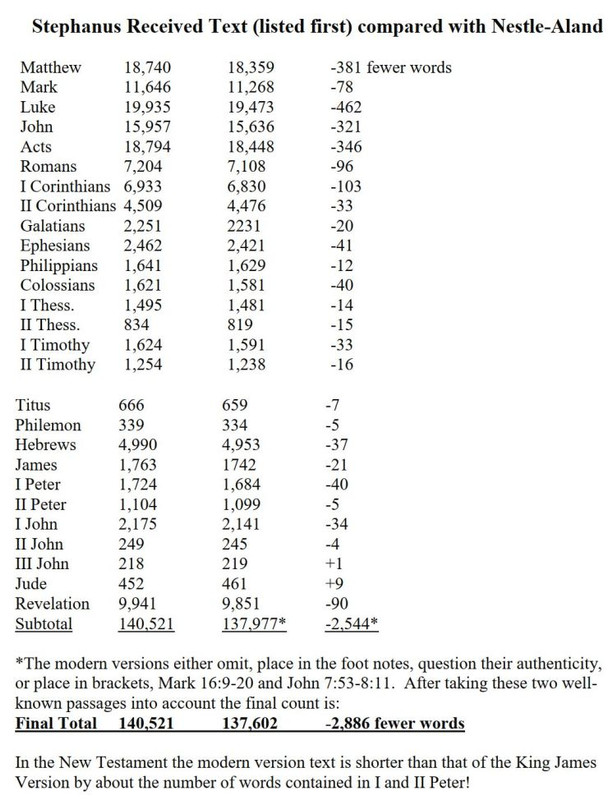Looking at this passage in Rev 22...
I warn everyone who hears the words of the prophecy of this book: if anyone adds to them, God will add to him the plagues described in this book, and if anyone takes away from the words of the book of this prophecy, God will take away his share in the tree of life and in the holy city, which are described in this book.
(Rev 22:18-19)
So if you take the Textus Receptus (in this case we'll use the KJV, Rev 1:11 says...
Saying, I am Alpha and Omega, the first and the last: and, What thou seest, write in a book, and send it unto the seven churches which are in Asia; unto Ephesus, and unto Smyrna, and unto Pergamos, and unto Thyatira, and unto Sardis, and unto Philadelphia, and unto Laodicea. (Rev 1:11)
and taking a translation based on the Alexandrian Text (in this case NASB)...
saying, "Write in a book what you see, and send it to the seven churches: to Ephesus and to Smyrna and to Pergamum and to Thyatira and to Sardis and to Philadelphia and to Laodicea." (Rev 1:11)
Someone either added or left out (depending on which side of the debate you are on) the phrase " I am Alpha and Omega, the first and the last: and", whichever way you go someone is in BIG trouble if that promise holds true.
I warn everyone who hears the words of the prophecy of this book: if anyone adds to them, God will add to him the plagues described in this book, and if anyone takes away from the words of the book of this prophecy, God will take away his share in the tree of life and in the holy city, which are described in this book.
(Rev 22:18-19)
So if you take the Textus Receptus (in this case we'll use the KJV, Rev 1:11 says...
Saying, I am Alpha and Omega, the first and the last: and, What thou seest, write in a book, and send it unto the seven churches which are in Asia; unto Ephesus, and unto Smyrna, and unto Pergamos, and unto Thyatira, and unto Sardis, and unto Philadelphia, and unto Laodicea. (Rev 1:11)
and taking a translation based on the Alexandrian Text (in this case NASB)...
saying, "Write in a book what you see, and send it to the seven churches: to Ephesus and to Smyrna and to Pergamum and to Thyatira and to Sardis and to Philadelphia and to Laodicea." (Rev 1:11)
Someone either added or left out (depending on which side of the debate you are on) the phrase " I am Alpha and Omega, the first and the last: and", whichever way you go someone is in BIG trouble if that promise holds true.
-
3
-
3
-
1
-
1
- Show all


